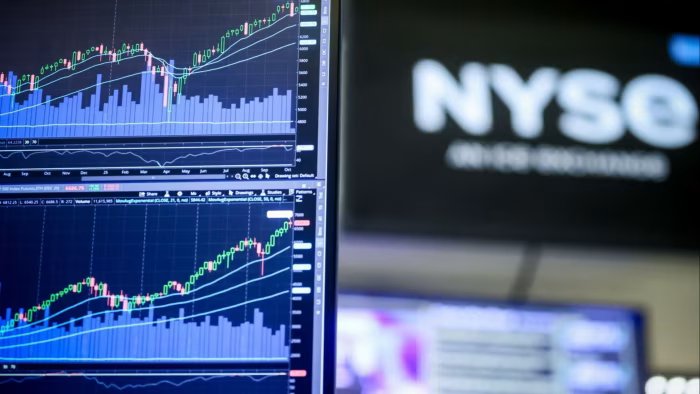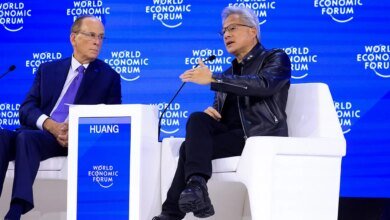European and Asian shares slide as Wall Street ‘fear index’ spikes

Stay informed with free updates
Simply sign up Stocks myFT Digest – delivered straight to your inbox.
European and Asian stocks fell on Friday and Wall Street’s “fear index” touched a five-month high as investors responded to concerns about US regional banks.
But US stocks rose in morning trading, with the S&P 500 index up 0.2 percent. Stock futures rebounded from earlier losses, supported by president Donald Trump’s comments about managing trade tensions between Washington and Beijing.
Banking stocks led a 0.7 percent decline in the Stoxx Europe 600 Index, with Deutsche Bank falling 4.5 percent and Barclays falling 3.9 percent.
Asian markets also fell, with Hong Kong’s Hang Seng falling 2.5 percent and mainland China’s CSI 300 falling 2.3 percent.
These moves came in the wake of the heavy selling witnessed in US regional bank stocks on Thursday, after two US banks, Western Alliance Bank and Zions Bank, revealed that they had been exposed to alleged fraud by borrowers.
The Vix index of short-term volatility in US stocks, often called the “fear index” on Wall Street, rose to 28.99 points on Friday morning, its highest level since April, before falling back to 24.56.
S&P 500 futures fell as much as 1.5 percent, but recovered after Trump indicated Washington would overcome trade tensions with China. About an hour before the market opened in New York, prices were flat.
Trump indicated in an interview with Fox Business Network that the planned additional 100% tariffs on Chinese imports may not be in effect for a long time.
Asked whether the tariffs would remain in place, he said: “No, it’s not sustainable, but that’s the number” – comments that markets initially seized on.
Trump then said of the higher tariffs: “They could have continued, but they forced me to do it; I think we’ll handle China just fine.”
The Western Alliance and Zions disclosures led to a 6.3 percent drop in the KBW US Regional Banking Index on Thursday, and heightened concerns about the health of credit markets in the wake of the failures of auto bank Tricolor and auto parts maker First Brands.
That prompted traders to cut risks amid broader fears of a bubble in AI stocks that has pushed US markets to a series of record highs.
“When you’re already worried about the return of the AI bubble and the US-China trade wars, you can’t afford that kind of news flow,” said Arun Say, chief multi-asset strategist at Pictet Asset Management. “With First Brands and Tricolor, investors are starting to see a pattern.”
2025-10-17 14:07:00





